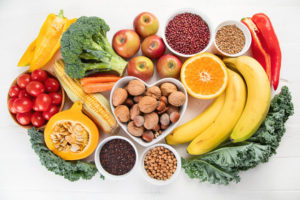Worst Foods to Eat if You Have Diabetes

Managing diabetes requires a higher level of dedication to a healthy lifestyle than the average person. Therefore, knowing what foods to eat and not to eat is very important, especially when trying to manage type 2 diabetes with diet alone. Unfortunately, many of the foods that diabetics should avoid are commonplace, and refraining is difficult. However, being aware of your body’s nutrition is the first step in any diabetes treatment plan that involves dietary management.
There are several types of foods that all diabetics should avoid to help manage their blood glucose levels, including:
- Candy and Sweets
- Baked Goods
- Starchy Vegetables
- Dried Fruit
- Processed Grains
- Sweetened Cereals
- Flavored Coffees
- Sodas
- Juices and Juice Cocktails
- Natural Sweeteners
- Alcohol
- Trans- and Saturated Fats
If You can’t tell from this list, carbohydrates, and especially sugars, are particularly bad for diabetics. Candies, cookies, cakes, pastries, sweetened cereals, and bread should all be avoided unless they are made with whole-grain flour and a sugar substitute such as Splenda. Even when made with the most diabetic-friendly ingredients, these foods should only be consumed in strict moderation.
You might think fruits and vegetables are the cornerstones of any healthy diet, but it depends on which fruits and vegetables you’re talking about. Dried fruits are typically much higher in sugar content than their fresh counterparts, making them unsuitable for diabetic diets. And not all vegetables are created equal in the diabetic world. starchy vegetables like potatoes and corn can spike blood sugar levels. These are best avoided in favor of other vegetables such as tomatoes, beans, and sprouts, to name a few.
Beverages present another dilemma for diabetics. Some beverages can contain just as many carbohydrates and grams of sugar as the meal it accompanies. With the prevalence of a supersize me society, sweet, sugary beverages are consumed almost by the gallon full. Even beverages that were traditionally low sugar are now commonly packed with syrups, sauces, sweeteners, and toppings that push their carb count skyward. It is best to avoid all of these sweet drinks in favor of just plain old water. Many sugar-free water flavorings are available at grocery stores to help jazz it up a little, as drinking water all day every day can become a bit bland.
Since alcohol is typically distilled from some sort of carbohydrate such as wheat, corn, rye, etc., it typically breaks down into sugar in the body once consumed. Consuming just three alcoholic beverages and one sitting can cause a significant spike in blood sugar levels, so diabetics should be extra careful not to binge drink. However, the alcohol options available to diabetics have come a long way in recent years. The introduction of hard seltzers to the market has been a game-changer for those looking to control sugar intake yet still enjoy the occasional drink. This allows diabetics to still feel a part of their social circles while making better lifestyle choices.
While trans fats and saturated fats will not cause direct blood sugar spikes, they do cause damage to the cardiovascular system with long-term consumption. Since a hallmark of diabetes is an accumulation of glucose in the bloodstream and the resultant damage that this causes, adding any extra stress to the heart, arteries, and veins of an already diabetic person can be devastating. Diabetics are advised to avoid trans fats and saturated fats in order to preserve cardiovascular functioning and optimize quality of life.
Strict dietary management and routine monitoring by your physician and possible medication are key for all diabetics to enjoy a happy, healthy life. Avoiding foods that are known to spike blood sugar levels and exacerbate symptoms of diabetes Is just one step in a comprehensive treatment plan to keep you healthy and functioning optimally.

